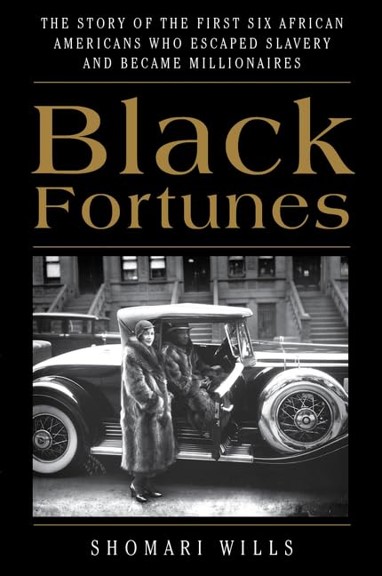I am recording a few thoughts on the book Black Fortunes: The Story of the First Six African Americans Who Escaped Slavery and Became Millionaires.
Real Estate: A Key Factor in Accumulating Wealth
So, once again, as I’ve mentioned before, nearly all of the millionaires highlighted in this book had a significant portion of their wealth tied up in real estate. I think that’s an important point to emphasize. Real estate has historically and continues to be a major driver of wealth. It’s something we still need to strive for today.
Challenges Faced After Emancipation
What else… These first black millionaires acquired their wealth shortly after emancipation, meaning racism was still very prevalent. It was worse than it is today; though it seems like there’s been improvement over the years, there’s also been some recent regression.
Racism was definitely much more overt back in those days. What’s inspiring about their stories is that despite facing numerous roadblocks due to prejudice and discrimination, they still pursued wealth. Many of them were outright attacked by racists. Hearing how these black millionaires were consistently targeted due to racial prejudice at every turn doesn’t surprise me. However, from a global standpoint, someone unfamiliar with American history or from another country might not automatically assume that every attack on their wealth was racially motivated. They faced a multitude of opposition, including lawsuits and false accusations.
They mentioned that they were physically attacked, their neighborhoods and communities were burned, and people were killed, which is very disheartening. But amidst that darkness, there’s something enlightening to take away: they still sought to amass wealth despite the adversities. There were opportunities back then, just as there are now, and probably even more so. However, a word of caution: don’t flaunt your money too much. I’m not suggesting that they flaunted their wealth, but it’s important to be cautious about drawing attention to your financial success.
The Erosion of Wealth and Cultural and Societal Legacies
Another disheartening aspect, which also isn’t too surprising, is that much of their wealth died with them or even before them. They may not have had many heirs to pass their wealth onto, or they faced tragic events like the Tulsa race massacre, or they were sued and falsely accused, leading to the loss of their wealth. Some were even tricked out of their money. Consequently, a significant portion of the wealth accumulated back then no longer exists today.
Despite this, their cultural and societal impacts may still be felt, although their influence has diminished or died out. So, while there’s still some enlightenment to be found, there’s also a lot of sadness in their stories.
Conclusion
Overall, it’s a good book. One criticism I have, however, is that it’s both an advantage and a disadvantage. I believe the author attempted to weave together the narratives of each of these millionaires chronologically. So you might transition from one millionaire who was accumulating wealth in the 1920s to another person who was doing so five years later. The author switches back and forth, intertwining their stories and timelines to show how they matched up. While I respect that decision, I found it a bit challenging to keep track of who was who, especially while listening to the audio version. Sometimes, I’d lose track of the details about a person when the narrative switched back and forth. That was one aspect of the style that I struggled with. Nevertheless, it’s still an overall good book, and I enjoyed it.
It’s much needed, and hopefully, others will pick up on the stories in this book and continue to share them through various forms of media. I can see the impact of constantly discussing these stories, slowly seeping into society’s consciousness. As I was reading this book, I noticed that the TV show Lovecraft Country on HBO, and in the very first episode, there was a depiction of the Tulsa race massacre. It was interesting to see this topic being discussed more widely. Previously, you might come across tidbits about it online or hear it mentioned in a podcast or YouTube video. However, now it’s becoming more mainstream, even being featured in popular TV shows.
And you know, looking online and reading the comments, many people mentioned that they had never heard of these stories before and this was their first time learning about the experiences of both white and black people. This further underscores my point that hopefully, more people will pick up on these stories and continue to integrate them into our society. Learning from these narratives can help us build a more inclusive and understanding community.
Original draft written in October 2019

